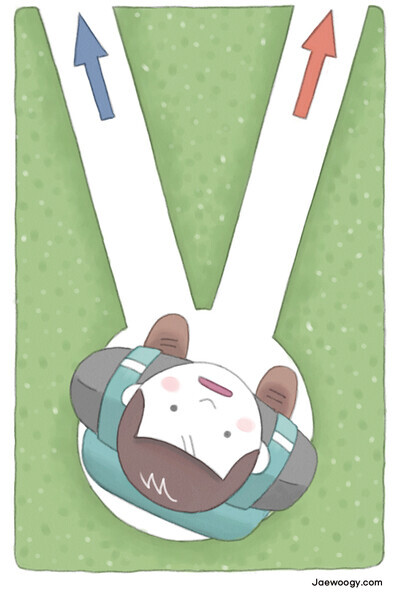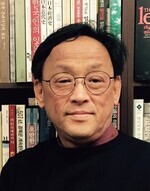hankyoreh
Links to other country sites 다른 나라 사이트 링크
[Column] Thinking about 20, 30 something voters

While I was watching the by-elections for mayors and other local government positions in South Korea Wednesday, I couldn't shake the feeling that too much significance was being placed on a minor election whose winners will only be in office for the year or so remaining in their predecessors' terms. What sparked my interest in this election was not its outcome so much as the generational tendencies indicated by public opinion polls.
Polls vary considerably with their timing and methodology and with the organization conducting them. But generally, polls showed that people in their 40s preferred candidates with the ruling Democratic Party, that people in their 20s, 30s, and 60s and above preferred candidates with the opposition People Power Party (PPP), and that people in their 50s were evenly split between the two sides.
Even granting that polls are inherently limited and do not represent the actual election results suggests a definite and substantial shift in generational voting tendencies compared with the past. Previously, generational political preferences tended to break down as follows: people in their 20s and 30s preferred moderate and liberal parties (currently, the Democratic Party), people in their 40s were divided in their preferences, and people in their 50s and above preferred conservative parties (currently, the PPP). The most striking thing about recent polls is that young people in their 20s and 30s, who propelled the Democratic Party to victory in the 2017 presidential election and the 2020 general election, are turning against the Democratic Party.
To be sure, this isn't a wholly surprising development. The current government's slogan of "equal opportunities, fair processes, and just outcomes" was very appealing to members of a young generation who have to endure the winner-takes-all system of neoliberalism. But that slogan began to lose its luster after the Cho Kuk scandal, and skyrocketing real estate prices and speculation in upcoming housing developments by public servants at the Korea Land and Housing Corporation were enough to transform young people's disappointment into rage.
Considering that, on top of all that, the vacancies in this by-election resulted from sexual misconduct by mayors within the Democratic Party, it's hardly abnormal that the younger generation decided to punish the current administration.
For many supporters of the Democratic Party who still regard the current political structure as pitting "reactionary conservatives" against "reform-minded progressives" and who see the task of democratic reform as still incomplete, it probably feels perplexing and troubling to see young people not only defect from the Democratic Party but also throw their support behind the PPP.
But worrying that the younger generation is becoming more conservative or attributing the election results to young people's lack of historical experience (as one of the Democratic Party's mayoral candidates did) can be seen as not mere oversimplification but as a classic example of othering. How is that any different from the establishment's argument in the 1970s and 1980s that the young people fighting for democracy hadn't experienced the Korean War and the poverty that followed it?
For people in their 20s and 30s, memories of the struggle for democracy in the 1980s are as faint and dim as memories of the independence movement against Japan are for people in their 50s who were, in their youth, part of that struggle for democracy.
Those who have spent most of their lives in the grip of a neoliberal system don't have any clear future to look forward to. That stands in contrast with those who lived through industrialization in the confidence that, if they worked hard and endured the challenging circumstances of the present, things would improve someday, and with those who resisted the dictatorship and fought for democracy in the belief that liberation would bring an end to inequality, poverty, oppression, and even the memories of terror. The material prosperity of the industrializers and the ideological glory of the democratizers are far outside young people's experience. Indeed, that prosperity and glory are little better than dusty historical relics that only appear in the "when I was your age" style of reminiscing in which older people like to indulge.
Young people today can't have any long-term stable dreams about the future under neoliberalism, which has built a sophisticated system of worldwide labor exploitation based on the two pillars of the free movement of capital and employment flexibilization. They face a stark choice between successfully securing a stable future or failing to seize that opportunity (which is as difficult as a camel threading the eye of the needle) and spending the rest of their lives bouncing between unstable jobs as members of the precariat.
I'm reminded of what one student said in an online debate class year. "Your generation chose struggle, but our generation chose competition." In the end, this generation's preference for competition over struggle is conservative in the sense that it conforms to the logic of the system.
But at the same time, that's a tearful conservatism in the sense that it's not one of several choices but almost the only choice available. Furthermore, conservatism is merely superficial and temporary because all young people are infused with a radicalism bound to explode as rebellious energy aimed at somehow overthrowing the establishment.
In the candlelit rallies in late 2016, we already saw that people in their 20s and 30s aren't all so exhausted by their neoliberal condition as to abandon all thought of a new future. But what we ought to be truly concerned about is the question of what outlet there will be for the radical and rebellious energy in these young people who face the brunt of the current era.
Members of the older generation (that is, the establishment for people in their 20s and 30s) lived through programmatic times, when there were always definite ideological outlooks (whether modernization, ethnonationalism, or class revolution) promising a new future of hope and prosperity and a corresponding plan of action.
But in this time of postmodern chaos, when there are doubts about whether the very system of capitalism is sustainable, all attempts to find an alternative have run into dead ends. What's even worse about our era is the difficulty for any alternative ideology or campaign to gain traction as a political movement with a meaningful size and level of organization because of the deconstructive and decentralized tendencies of postmodernism, with its rejection of authoritarianism and collectivization. Ultimately, such efforts are delegated to individual choice or relegated to the domain of identity politics, with its focus on minority groups and us-them thinking.
When true alternative ideologies and approaches evaporate, what takes their place is the populism that is currently running rampant around the world. The essence of populism is that the masses, seeking to escape reality like druggies looking for a fix, entrust their future to political opportunists who offer plausible fantasies in the absence of any prospective system or practical program for moving beyond neoliberalism.
Can people in their 20s and 30s and generations still to come transcend feelings of grievance and scorn for the preceding generations and aspire to historical agency, rather than being either populist fanatics or voluntary slaves of neoliberalism? What kind of ideological and practical preparations are being made toward that end? And does our society even have the capacity for such a task? Those are the big questions I've pondered during this by-election.

By Kim Myung-in, professor of Korean language education at Inha University
Please direct comments or questions to [english@hani.co.kr]

Editorial・opinion
![[Editorial] Penalties for airing allegations against Korea’s first lady endanger free press [Editorial] Penalties for airing allegations against Korea’s first lady endanger free press](https://flexible.img.hani.co.kr/flexible/normal/500/300/imgdb/original/2024/0502/1817146398095106.jpg) [Editorial] Penalties for airing allegations against Korea’s first lady endanger free press
[Editorial] Penalties for airing allegations against Korea’s first lady endanger free press![[Editorial] Yoon must halt procurement of SM-3 interceptor missiles [Editorial] Yoon must halt procurement of SM-3 interceptor missiles](https://flexible.img.hani.co.kr/flexible/normal/500/300/imgdb/child/2024/0501/17145495551605_1717145495195344.jpg) [Editorial] Yoon must halt procurement of SM-3 interceptor missiles
[Editorial] Yoon must halt procurement of SM-3 interceptor missiles- [Guest essay] Maybe Korea’s rapid population decline is an opportunity, not a crisis
- [Column] Can Yoon steer diplomacy with Russia, China back on track?
- [Column] Season 2 of special prosecutor probe may be coming to Korea soon
- [Column] Park Geun-hye déjà vu in Yoon Suk-yeol
- [Editorial] New weight of N. Korea’s nuclear threats makes dialogue all the more urgent
- [Guest essay] The real reason Korea’s new right wants to dub Rhee a founding father
- [Column] ‘Choson’: Is it time we start referring to N. Korea in its own terms?
- [Editorial] Japan’s rewriting of history with Korea has gone too far
Most viewed articles
- 1Months and months of overdue wages are pushing migrant workers in Korea into debt
- 2[Editorial] Penalties for airing allegations against Korea’s first lady endanger free press
- 3Bills for Itaewon crush inquiry, special counsel probe into Marine’s death pass National Assembly
- 4Trump asks why US would defend Korea, hints at hiking Seoul’s defense cost burden
- 560% of young Koreans see no need to have kids after marriage
- 6S. Korea discusses participation in defense development with AUKUS alliance
- 7[Reporter’s notebook] In Min’s world, she’s the artist — and NewJeans is her art
- 8Korean firms cut costs, work overtime amid global economic uncertainties
- 91 in 3 S. Korean security experts support nuclear armament, CSIS finds
- 10[Guest essay] Maybe Korea’s rapid population decline is an opportunity, not a crisis